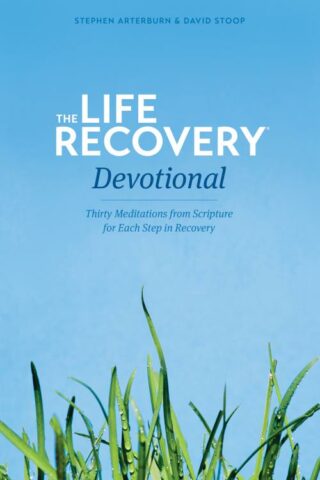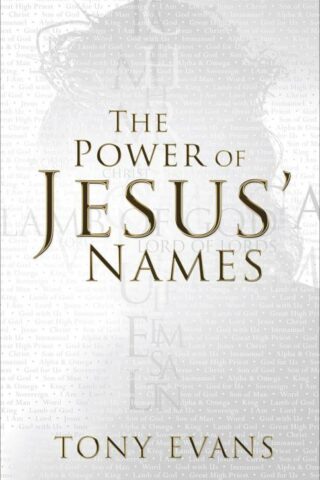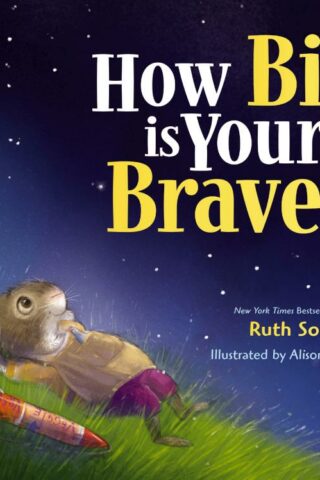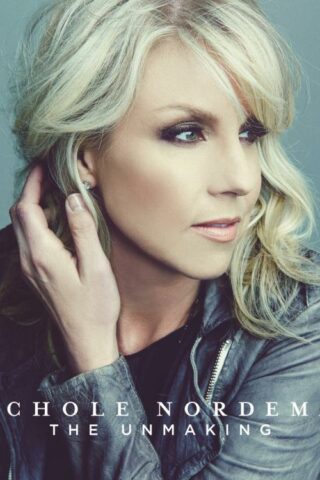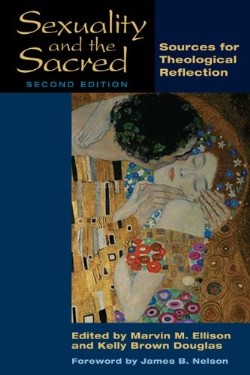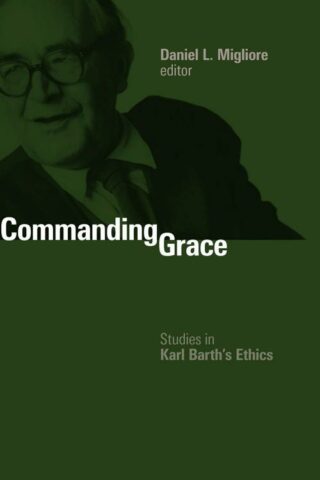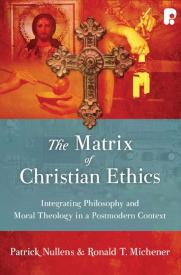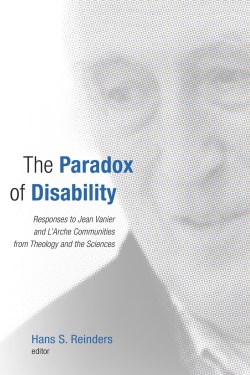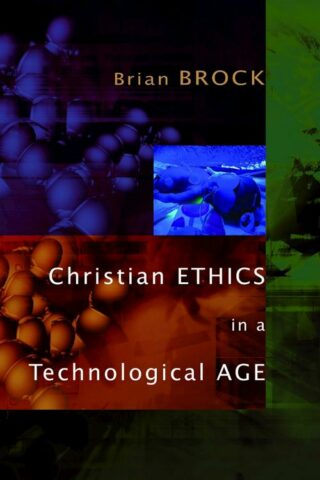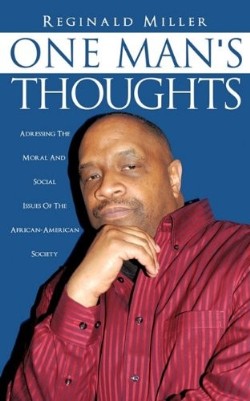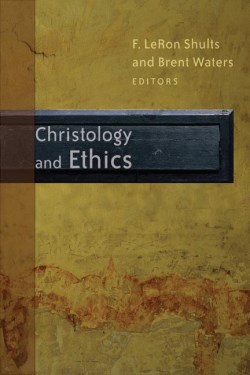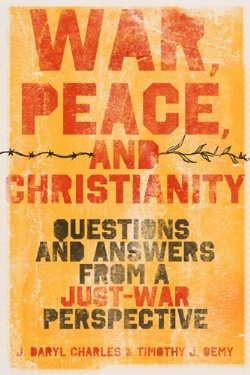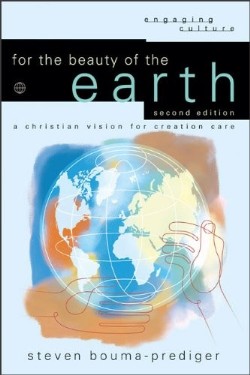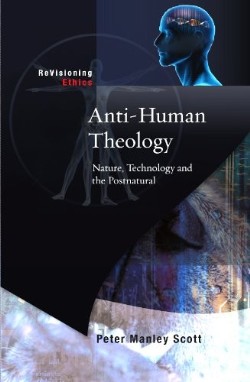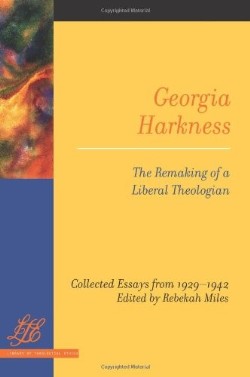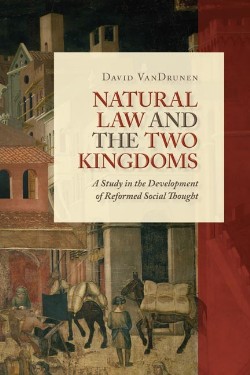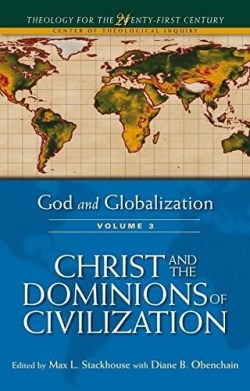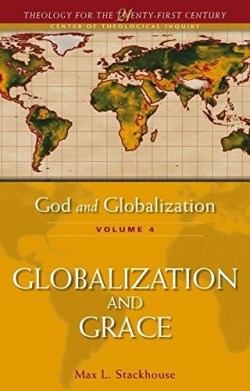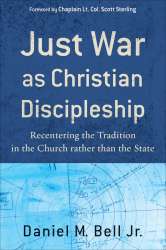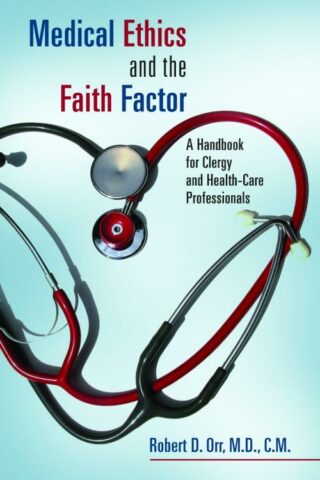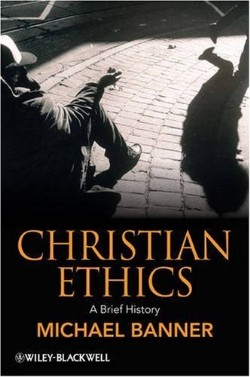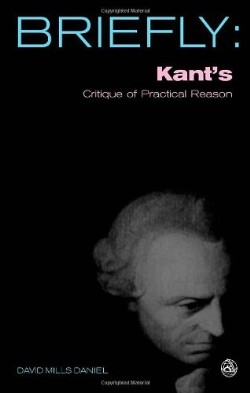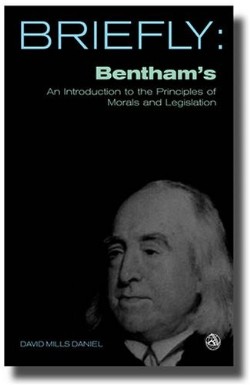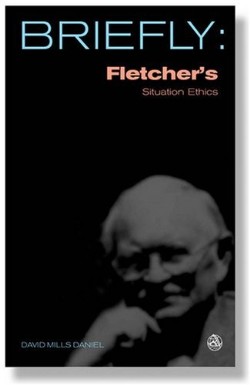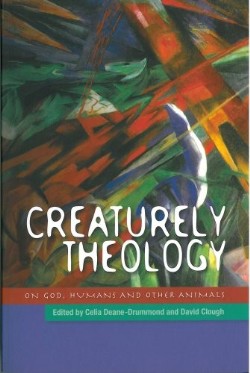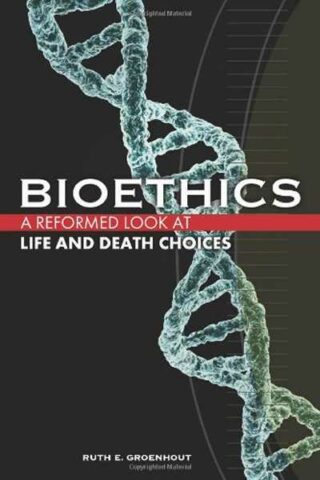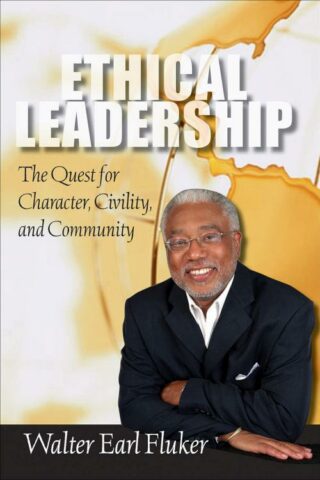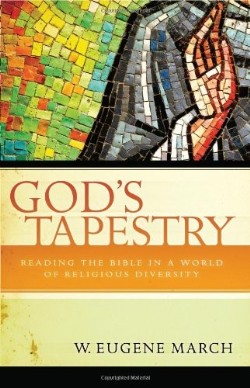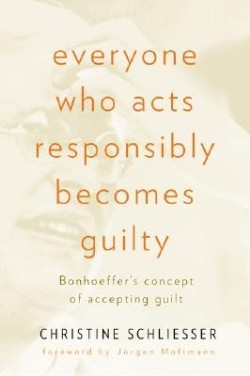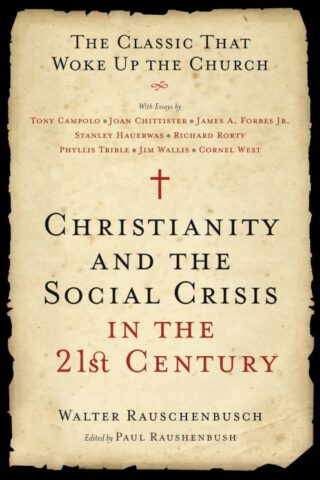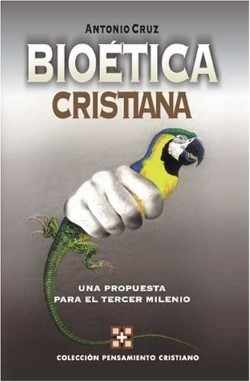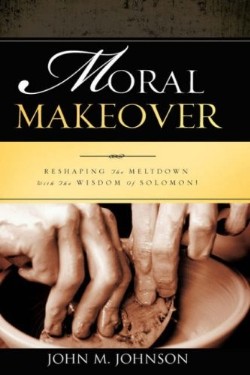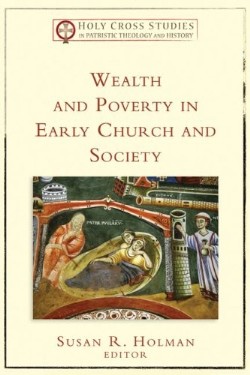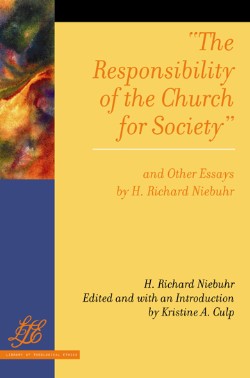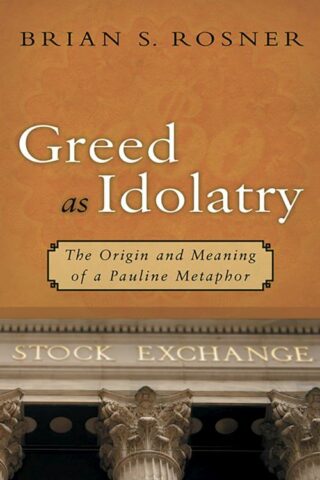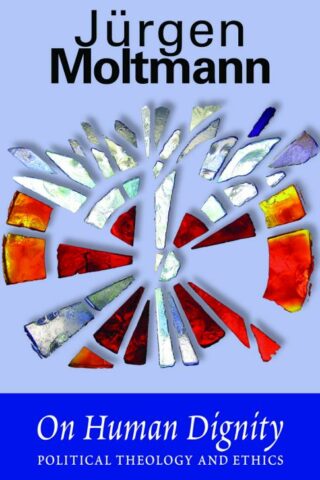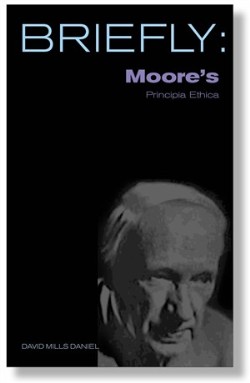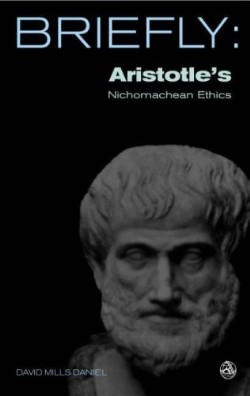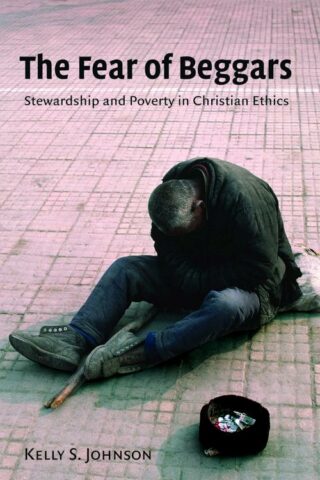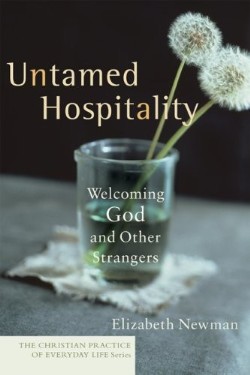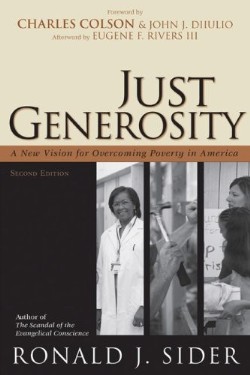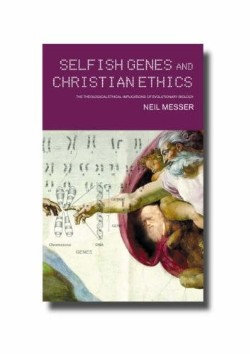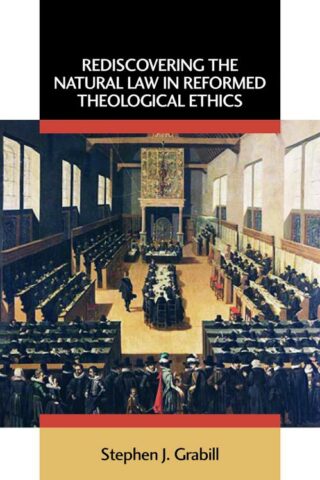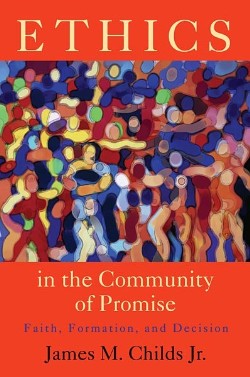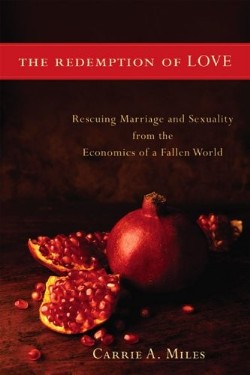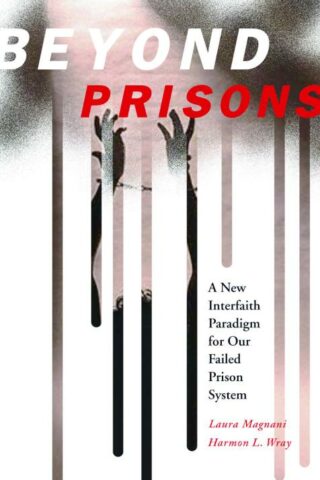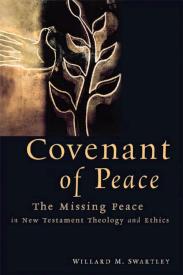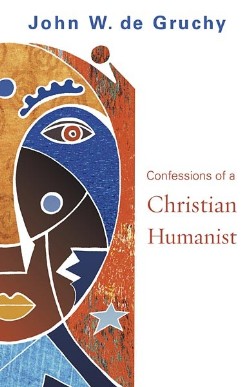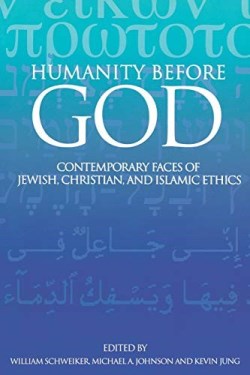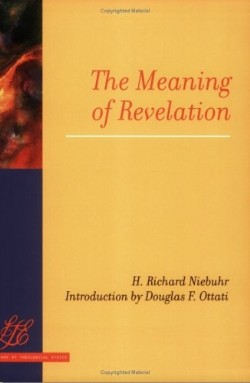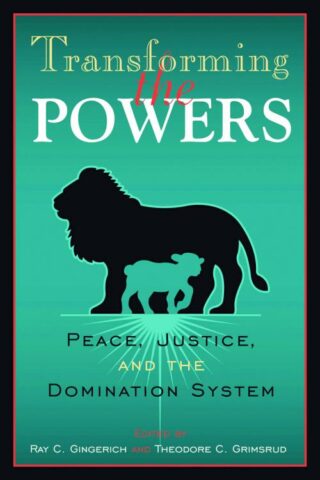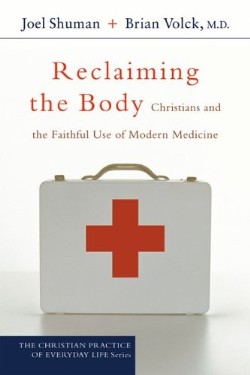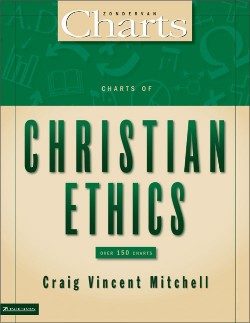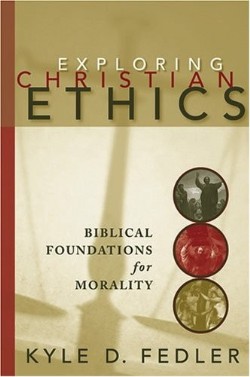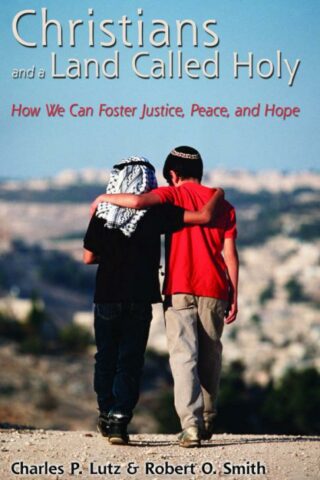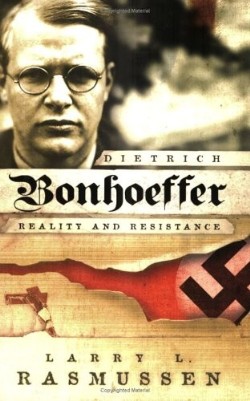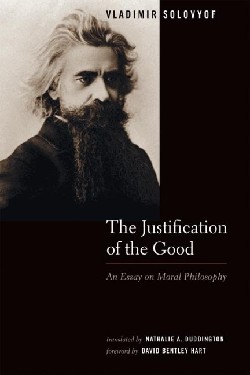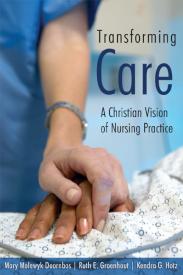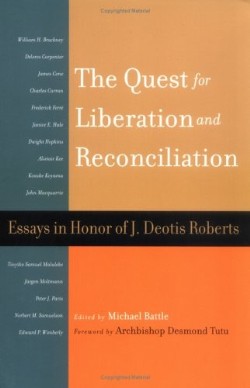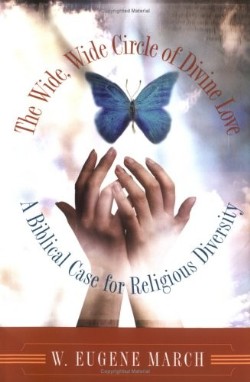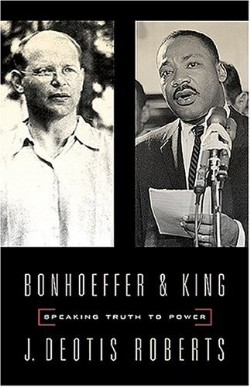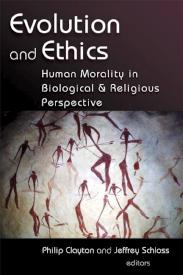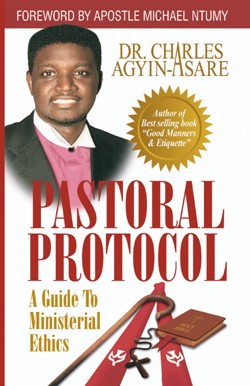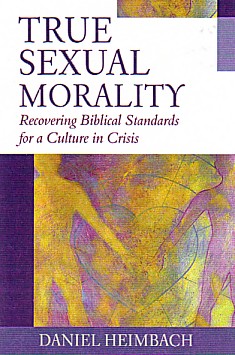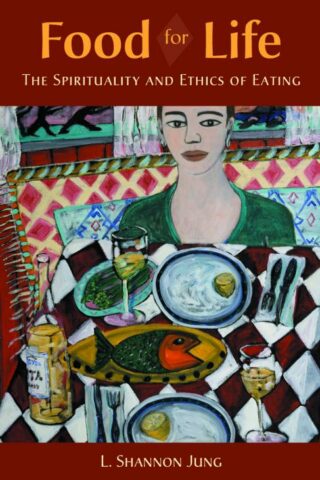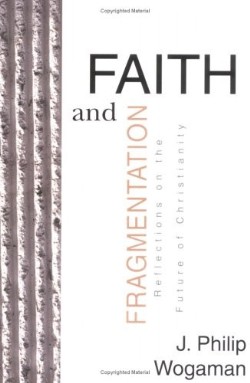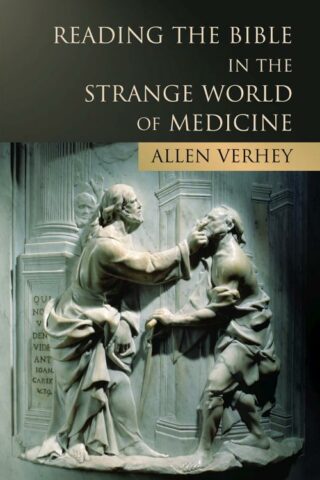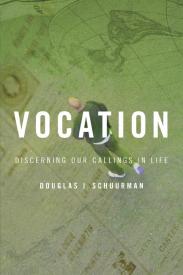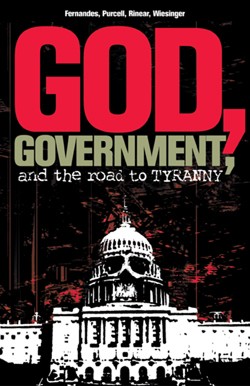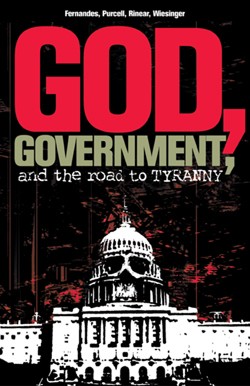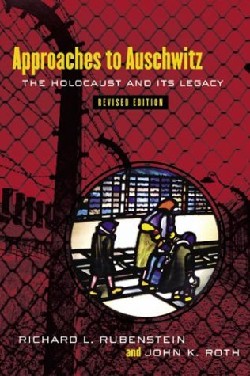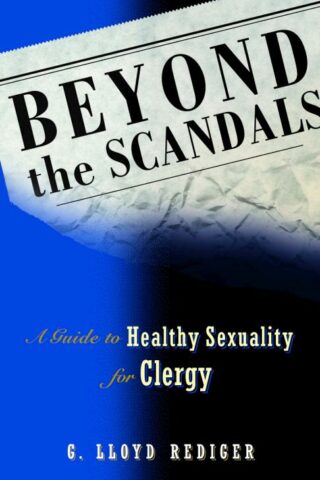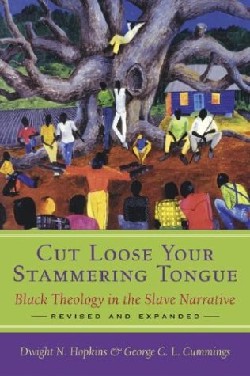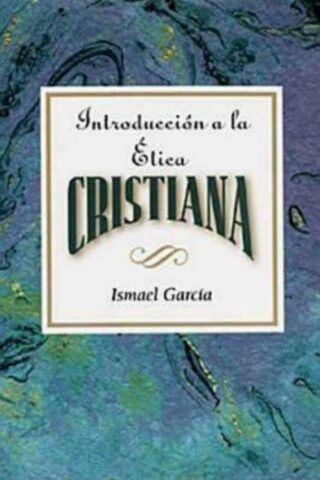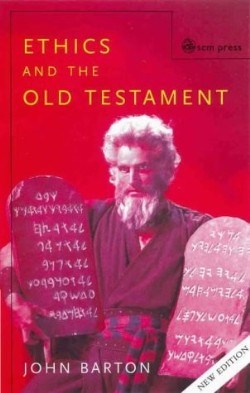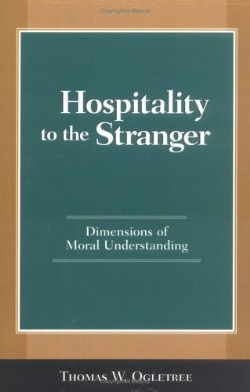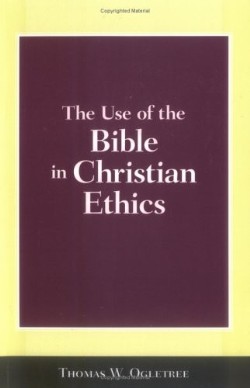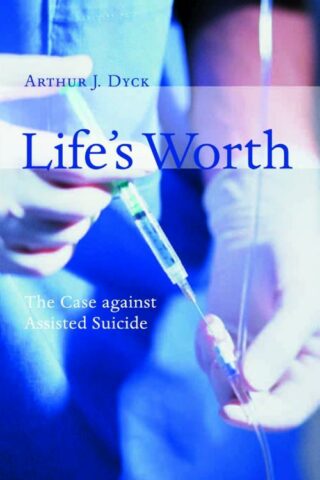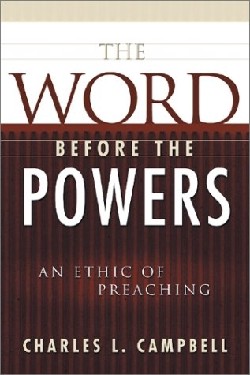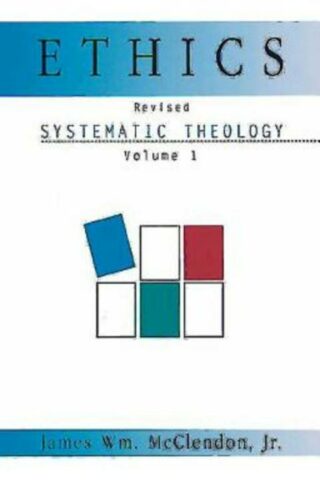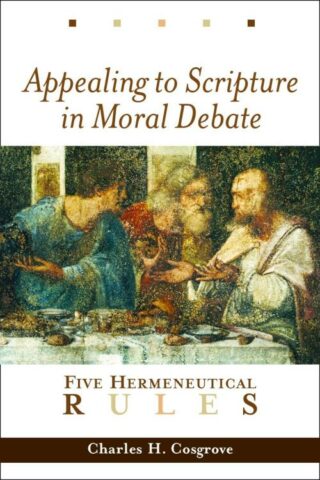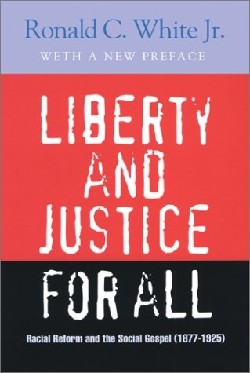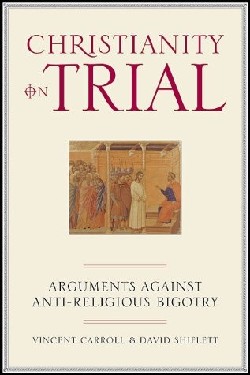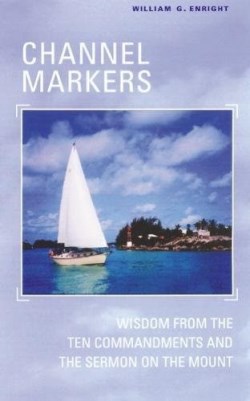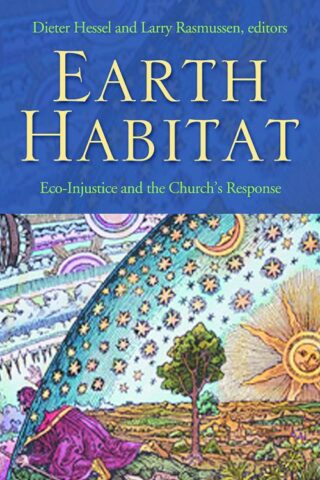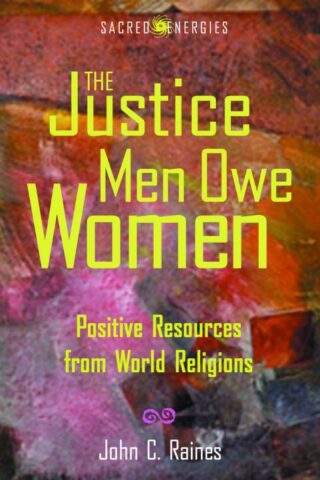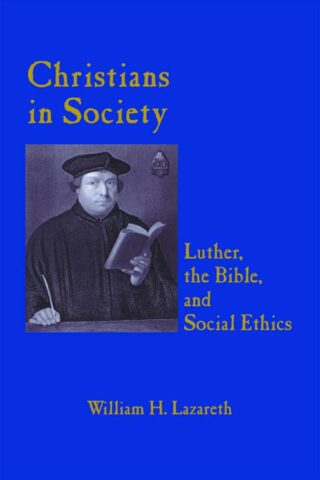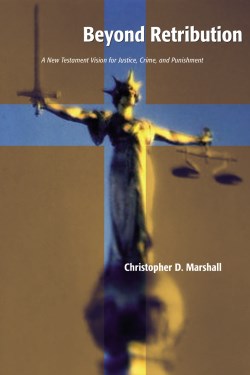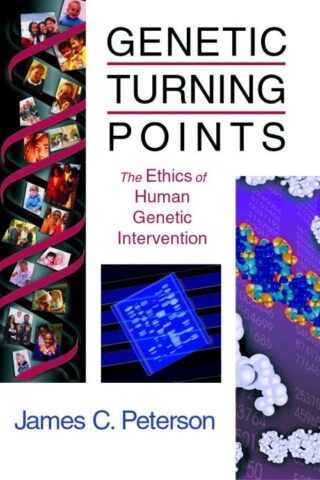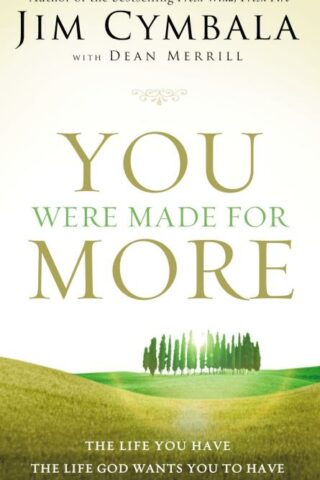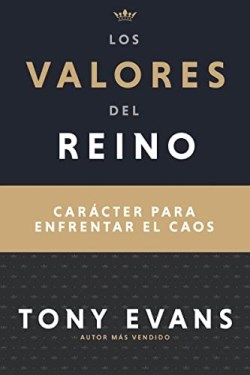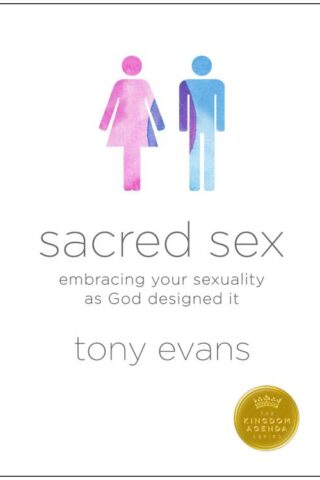Ethics
Showing 101–200 of 281 resultsSorted by latest
-
Sexuality And The Sacred (Expanded)
$55.00Christian discourse on sexuality, spirituality, and ethics has continued to evolve since this book’s first edition was published in 1994. This updated and expanded anthology featuring more than thirty contemporary essays includes more theologians and ethicists of color and addresses issues such as the intersection of race/racism and sexuality, transgender identity, same-sex marriage, and reproductive health and justice.
Add to cartin stock within 3-5 days of online purchase
-
Dont Give Up The Palace For A Night
$34.98The secular world has been on the fast track to lawlessness for decades and unfortunately Christians have been running neck and neck alongside it. Sexual immorality is endemic, while alternative lifestyles ebb from subculture into the mainstream. Don’t Give Up the Palace for a Night, The Down Low on Fornication in the Church is one of the most passionate and poignant exposes of our time about sex and promiscuity among Christian singles in the church.
Don’t Give Up the Palace for a Night is as real as it gets. The book is raw, in-your-face candid, as it gets into “real talk” discussions about why premarital sex is the lifestyle of choice for scores of Christian singles and what the Bible has to say about it. It dares to tread where other Christian books do not as it talks about Christians without ethics-fornicating pastors preaching in the pulpit; sexually promiscuous men and women singing in the choir. The book explores the emotional profile of an intruder-the single woman in the church who becomes sexually involved with a married man in the church. El discusses why it is important that Christians be equally yoked; finding Mr. and Mrs. Right; and why women bond to men after sexual intercourse.
If you, or someone you know, have been praying and looking for a compelling and life-changing word, look no further, Don’t Give Up the Palace for a Night, The Down Low on Fornication in the Church is God’s answer to your prayers.
Add to cartin stock within 3-5 days of online purchase
-
Dont Give Up The Palace For A Night
$22.48The secular world has been on the fast track to lawlessness for decades and unfortunately Christians have been running neck and neck alongside it. Sexual immorality is endemic, while alternative lifestyles ebb from subculture into the mainstream. Don’t Give Up the Palace for a Night, The Down Low on Fornication in the Church is one of the most passionate and poignant exposes of our time about sex and promiscuity among Christian singles in the church.
Don’t Give Up the Palace for a Night is as real as it gets. The book is raw, in-your-face candid, as it gets into “real talk” discussions about why premarital sex is the lifestyle of choice for scores of Christian singles and what the Bible has to say about it. It dares to tread where other Christian books do not as it talks about Christians without ethics-fornicating pastors preaching in the pulpit; sexually promiscuous men and women singing in the choir. The book explores the emotional profile of an intruder-the single woman in the church who becomes sexually involved with a married man in the church. El discusses why it is important that Christians be equally yoked; finding Mr. and Mrs. Right; and why women bond to men after sexual intercourse.
If you, or someone you know, have been praying and looking for a compelling and life-changing word, look no further, Don’t Give Up the Palace for a Night, The Down Low on Fornication in the Church is God’s answer to your prayers.
Add to cartin stock within 3-5 days of online purchase
-
Word In Due Season
$33.11A wise man once said a word fitly spoken is like apples of gold in a setting of silver (Proverbs 25:11). Wrong words spoken at wrong times can hinder the deliverance or blessing the Lord is planning to bring forth in the lives of His children. That’s why Dr. Joy Marie Dixon penned this book that helps readers to recognize the prophetic moments in their lives and allow God to work through them.
Add to cartin stock within 3-5 days of online purchase
-
Commanding Grace : Studies In Karl Barths Ethics
$33.99In this seminal volume, contemporary theologians revisit the theological ethics of Karl Barth as it bears on such topics as the moral significance of Jesus Christ, the Christian as ethical agent, the just war theory, the relationship between doctrines of the atonement and modern penal justice systems, the virtues and limits of democracy, and the difference between an economy of competition and possession and an economy of grace.
Add to cartin stock within 3-5 days of online purchase
-
Matrix Of Christian Ethics
$33.99In today’s world, many Christians don’t know how to live ethically, let alone know what ethics is. Christian ethics probes our deepest sensibilities as humans and how we seek the good for others as well as for ourselves as followers of Christ. This book begins to delve into this relevant and contemporary subject through methodological reflection on the commands, purposes, values, and virtues of Christian life in today’s context.
To address these factors, an integrative approach to ethics is proposed, borrowing from classical ethical models such as consequential ethics, principle ethics, virtue ethics, and value ethics. This is what the authors call a matrix of Christian ethics. This matrix will be played out in a variety of ways throughout the book, from the discussion of the postmodern situation of ethics and values to current proposals for the ongoing development of Christian ethics today. It concludes with some practically oriented guidelines to help the reader consider contemporary ethical questions and conflicts within a framework of biblical wisdom, in view of the ongoing work of the Holy Spirit in the lives of followers of Christ.
Add to cartin stock within 3-5 days of online purchase
-
Paradox Of Disability
$24.99The village of Trosly-Breuil in northern France is home to one of the world’s thirty-four L’Arche communities, where people with and without intellectual disabilities live and work together. In 2007 an impressive assortment of social scientists and theologians gathered there to offer responses to a question posed by the worldwide community’s cofounder, Jean Vanier: “What have people with disabilities taught me?” Their answers are here presented in a diverse collection of essays.
Editor Hans Reinders emphasizes that these analyses and reflections – like the L’Arche communities that inspired them – are not meant to set apart those with disabilities. Rather, they encourage people of all abilities humbly to acknowledge that to be human is to live with brokenness and limitation – and that to experience true community we must first learn to receive other people as God’s gift.
Add to cartin stock within 3-5 days of online purchase
-
Christian Ethics In A Technological Age
$40.99Through close analysis of the historical and conceptual roots of modern science and technology, Brian Brock here develops a theological ethic addressing a wide range of contemporary perplexities about the moral challenges raised by new technology.
Part I lays the groundwork for theological analysis by tracing “secular” philosophical accounts of modern technology’s shape, origins, meanings, and ethical implications, looking specifically at Martin Heidegger and two of his interpreters, George Grant and Michael Foucault. Part II develops an account of faith’s seeking to hear the claim of Christ amid technological life. Viewing technology as a human mode of thought that comes to approach all things and relationships as susceptible to human ordering and management, Brock explores how faith opens up trajectories for new ways of living with others elided by technological rationality.
Add to cartin stock within 3-5 days of online purchase
-
1 Mans Thougths
$16.86Have you ever wondered what happened to the African American society, why are we so different from long ago and then again why haven’t we changed.
One Man’s Thoughts is a thought provoking piece that reflect the thoughts of one Black man whose words of inspiration and encouragement may very well be just what the African American society needs to read.
Add to cartin stock within 3-5 days of online purchase
-
Christology And Ethics
$31.99This book brings together leading theologians and ethicists to explore the neglected relationship between Christology and ethics. The contributors to this volume work to overcome the tendency toward disciplinary xenophobia, considering such questions as these:
What is the relation between faithful teaching about the reality of Christ and teaching faithfulness to the way of Christ?
How is christological doctrine related to theological judgments about normative human agency?
With renewed attention and creative reformulation, they argue, we can discover fresh ways of tending to these perennial questions.Add to cartin stock within 3-5 days of online purchase
-
Better Life : A Need To Know
$28.73Anyone who wants to have loving and fulfilling relationships can learn some key principles by reading this book. Relationships can become anything you desire. Your thoughts, actions, and words will affect those around you. This can be for the positive or the negative. We all have a choice. Gain insight into these key factors and enjoy your future relationships.
Add to cartin stock within 3-5 days of online purchase
-
War Peace And Christianity
$27.99The authors speak from a just-war moral perspective to provide Christians with expert and accessible answers to more than one hundred common questions concerning the ethics of war. With issues of war and peace at the forefront of current events, an informed Christian response is needed. This timely volume answers 105 questions from a just-war perspective, offering thoughtful yet succinct answers. Ranging from the theoretical to the practical, the volume looks at how the just-war perspective relates to the philosopher, historian, statesman, theologian, combatant, and individual-with particular emphases on its historical development and application to contemporary geopolitical challenges. Forgoing ideological extremes, Charles and Demy give much attention to the biblical teaching on the subject as they provide moral guidance. A valuable resource for considering the ethical issues relating to war, Christians will find this book’s user-friendly format a helpful starting point for discussion.
Add to cartin stock within 3-5 days of online purchase
-
For The Beauty Of The Earth
$40.00Caring for the environment is a growing interest among evangelicals. This award-winning book provides the most thorough evangelical treatment available on a theology of creation care. “Authentic Christian faith requires ecological obedience,” writes Steven Bouma-Prediger. He urges Christians to acknowledge their responsibility and privilege as stewards of the earth. The second edition has been substantially revised and updated with the latest scientific and environmental research.
Add to cartin stock within 3-5 days of online purchase
-
Anti Human Theology
$104.00Peter Manley Scott offers a theological and ethical reading of our present situation. Due to the vigour of its re-engineering of the world by its technologies, western society has entered into a postnatural condition in which standard divisions between the natural and the artificial are no longer convincing. This postnatural development is liberating – both theologically and politically. Scott develops an ‘anthropology’ that does not repeat Christianity’s history of anthropocentrism but instead criticises it by exploring the mutual entanglement of animals, humans and other creatures. Deeply disrespectful of traditional centres of power, his ethical critiques of ‘pioneering’ technologies expose their anti-social and anti-ecological tendencies and identify possible paths of oppositional political action. This is ethical theology at its best: deeply informed by theological tradition, immersed in contemporary political-technological problematics in radically oppositional ways, and yet fiercely hopeful of a good outcome for anim
Add to cartin stock within 3-5 days of online purchase
-
Georgia Harkness : The Remaking Of A Liberal Theologian
$40.00Georgia Harkness (1891-1974) was a Methodist theologian and the first American woman to teach theology at the seminary level. A leader in the ecumenical movement, Harkness strove to make theology accessible to the laity.
This book is a compilation of writing from early in her career that appeared in publications such as The Christian Century, Religion in Life, and Christendom. Although her theology shifted somewhat during these years, Harkness held fast to her belief that liberal theology would remain “the basic American theology,” a prediction that was out of step in the 1930s but is growing more credible today.Add to cartin stock within 3-5 days of online purchase
-
Natural Law And The Two Kingdoms
$44.99Conventional wisdom holds that the theology and social ethics of the Reformed tradition stand at odds with concepts of natural law and the two kingdoms. This volume challenges that conventional wisdom through a study of Reformed social thought from the Reformation to the present.
David VanDrunen begins by exploring the early development of Reformed thought in its first few centuries on the continent, in Britain, and in America. He argues that natural law and the two kingdoms were common themes in this early theology. In fact, he says, these ideas were embedded in crucial anthropological, christological, and ecclesiological doctrines, shaping convictions about the state, civil rebellion, and the role of the church in broader social life.VanDrunen then turns to more recent thinkers of the Reformed tradition – Abraham Kuyper, Karl Barth, Herman Dooyeweerd, and Cornelius Van Til – tracing how each contributed in his own way to the decline of these doctrines in Reformed theology and social ethics. Finally, he reflects on recent signs of renewed interest in natural law and the two kingdoms, suggesting how their recovery is a hopeful sign for the Reformed tradition.
“The strength of this book is the overwhelming amount of historical evidence, judiciously analyzed and assessed, that positions the Reformed tradition clearly in the natural law, two kingdoms camp. This valuable contribution to our understanding of the Christian life cannot and should not be ignored or overlooked. The growing acceptance of the social gospel among evangelicals puts us in jeopardy of losing the gospel itself; the hostility to natural law and concomitant love affair with messianic ethics opens us up to tyranny. This is a much needed and indispensable ally in the battle for the life of the Christian community in North America.” / – John Bolt / Calvin Theological Seminary
Add to cartin stock within 3-5 days of online purchase
-
Climate Justice : Ethics Energy And Public Policy
$33.33Energy issues and climate change have loomed up from issues at the horizon to confront humanity directly and vitally. They are now pressing public-policy challenges of monumental scale and import. James Martin-Schramm draws on decades of involvement with ethics, public policy, and environmental ethics to provide this lucid and astute analysis of the problems and options for addressing energy and climate change.
Schramm argues that reliance on fossil fuels has produced grave threats to justice, peace, and the integrity of creation. Addressing these threats requires of Christians not simply new individual sensitivities and sacrifices but a new way of living in harmony with the earth and an earnest search for policy that fosters sustainability, reflects values of equity and fairness, and operates on a scale commensurate with the problems. Martin-Schramm proposes a full analysis of the problems and causes of our situation and real principles for an ethic of ecojustice. He also provides specific assessment of norms, policy options, and recommendations in the areas of energy and climate change and a glimpse of what a workable alternative might look like, globally and locally.
Add to cartin stock within 3-5 days of online purchase
-
God And Globalization Volume 3
$71.58T And T Clark International Title
These volumes examine both the promise and the threat of globalization using the tools of theological ethics to understand and evaluate the social contexts of life at the deepest moral and spiritual levels.
Add to cartin stock within 3-5 days of online purchase
-
God And Globalization Volume 4
$71.58T And T Clark International Title
This final interpretive volume of the God and Globalization series argues for a view of Christian theology that, in critical dialogue with other world religions and philosophies, is able to engage the new world situation, play a critical role in reforming the “powers” that are becoming more diverse and autonomous, and generate a social ethic for the 21st century.
Add to cartin stock within 3-5 days of online purchase
-
Just War As Christian Discipleship
$37.50This provocative and timely primer on the just war tradition connects just war to the concrete practices and challenges of the Christian life. Daniel Bell explains that the point is not simply to know the just war tradition but to live it even in the face of the tremendous difficulties associated with war. He shows how just war practice, if it is to be understood as a faithful form of Christian discipleship, must be rooted in and shaped by the fundamental convictions and confessions of the faith. The book includes a foreword by an Army chaplain who has served in Iraq and study questions for group use.
Add to cartin stock within 3-5 days of online purchase
-
Medical Ethics And The Faith Factor
$47.99Medical Ethics and the Faith Factor is a reference book that promises to be a very useful resource for health care professionals, chaplains, pastors, priests, rabbis, and other people of faith who frequently interact with individuals and families facing illness and disability.
Robert Orr brings to the table the accumulated knowledge of four decades in the medical field, many of which he spent dealing with clinical ethics. However, unlike many books on medical ethics, this isn’t simply a platform to convince us that Orr’s opinion is fact. Instead, it is a reality check replete with real case studies that reintroduce the human element to a discussion so often detached from the very people it claims to concern.
In part 1 Orr explains the ethical and theological foundations of contemporary clinical ethics. Parts 2, 3, and 4 focus on specific ethical dilemmas. Here Orr tackles such questions as What management options are available when the family of a patient who is brain dead is unwilling to accept the diagnosis? Is a feeding tube ethically obligatory for a patient with advanced dementia? Is it ethically permissible to continue to prescribe narcotics for a patient who admits to their misuse? Should we provide organ transplantation for an undocumented foreign national?
Finally, part 5 explores ways that family members, clergy, counselors, and friends can assist patients and families as they struggle with these difficult decisions, emphasizing the priesthood of believers and the importance of prayer for God’s wisdom and peace.
Medical Ethics and the Faith Factor is a timely entry into a growing ethical discussion. Readers of this book will come away with a greater familiarity with clinical issues, a recognition of the moral questions raised by those issues – including those of religion and culture – and the ability to render more thoughtful assistance to patients and families struggling to find answers.
Add to cartin stock within 3-5 days of online purchase
-
Puzzle Of Sex
$25.00Almost everyone is directly affected by questions involving sex and sexual ethics – yet few are aware of the background to current views on topics such as sex before and after marriage, sex as procreation and fulfilment, homosexuality, sexual abuse, rape and contraception. This new edition offers added and up-to-date material discussion burning current issues in a thoughtful, reflective and challenging way.
Add to cartin stock within 3-5 days of online purchase
-
Christian Ethics : A Brief History
$63.25From questions about the status of early Christians who renounced theri religion under Roman torture, through to current debates about euthanasia, Christianity has always had to grapple with complex moral problems. Michael Banner steers readers through these issues, providing a clear and decisive history of the main figures and texts in Christian ethics and considers the contribution that Christian ethics can make to contemporary moral debates.
Add to cartin stock within 3-5 days of online purchase
-
Kants Critique Of Practical Reason
$15.00Kant’s Critique of Practical Reason (1788) is one of his most important works and a key text to understanding Kant’s philosophy and it the impact it had on later developments of moral philosophy and ethics.
Add to cartin stock within 3-5 days of online purchase
-
Benthams An Introduction To The Principles Of Morals And Legislation
$15.00In the Introduction to the Principles of Morals and Legislation (1789), Bentham strove to cut a new road through the wilds of jurisprudence. Laws should be socially useful and not merely reflect the status quo; and, that while he believed that human beings inevitably pursue pleasure and avoid pain, Bentham thought it to be a sacred truth that the greatest happiness of the greatest number is the foundation of morals and legislation.
Add to cartin stock within 3-5 days of online purchase
-
Fletchers Situation Ethics
$15.00This book discusses Fletcher’s situation ethics which basically states that sometimes other moral principles can be cast aside in certain situations if love is best served. It is one of the main ethical theories studied in all introductory courses on Christian ethics.
Add to cartin stock within 3-5 days of online purchase
-
Creaturely Theology : God Humans And Other Animals
$52.99Creaturely Theology is a ground-breaking scholarly collection of essays that maps out the agenda for the future study of the theology of the non-human and the post-human. A wide range of first-rate contributors show that theological reflection on non-human animals and related issues are an important though hitherto neglected part of the agenda of Christian theology and related disciplines. The book offers a genuine interdisciplinary conversation between theologians, philosophers and scientists and will be a standard text on the theology of non-human animals for years to come. Contributors include: Esther D. Reed (Exeter), Rachel Muers (Leeds), Stephen Clark (Liverpool), Neil Messer (Lampeter), Peter Scott (Manchester), Michael Northcott (Edinburgh), Christopher Southgate (Exeter)
Add to cartin stock within 3-5 days of online purchase
-
Bioethics
$20.00Bioethics helps Christians develop a biblical perspective on complex and controversial issues such as abortion, assisted reproduction, euthanasia, stem cell research, and genetic manipulation. It also encourages a compassionate Christian response to global health crises.
Discussions of life and death choices raise difficult questions:
How should Christians understand complex and controversial issues such as abortion, assisted reproduction, euthanasia, stem cell research, and genetic manipulation?
How do we respond to global health crises, or to chronic illness and suffering?
What is the biblical vision for life-and how should we go about voicing it?
This new book helps Christians develop a biblical understanding of bioethics and challenges us to apply that understanding to difficult issues. Discussion questions in each chapter make this book an excellent choice for group study or personal reflection.
Add to cartin stock within 3-5 days of online purchase
-
Ethical Leadership : The Quest For Character Civility And Community
$48.33We live in a leadership crisis. “In an age when incompatible worlds collide and when scandals rock formerly stable institutions,” says Walter Fluker, “what counts most is ethical leadership and the qualities of personal integrity, spiritual discipline, intellectual openness, and moral anchoring.” Fluker finds these characteristics exemplified in the work and thought of black-church giants Martin Luther King Jr. and Howard Thurman.
This volume, for leaders and emergent leaders in religious and other settings, sets forth the context and principles for ethical leadership, particularly for ministries and other professions whose mission directly advances the common good. Fluker’s volume grounds leadership in story, the appropriation of one’s roots, as a basis for personal and social transformation. He then explores the key values of character, civility, and community for ethical action on the personal, public, and spiritual realms. From these considerations he develops a model of the specific virtues that embody each realm of ethical leadership before applying them to the practical aspects of leadership and decisionmaking.
Add to cartin stock within 3-5 days of online purchase
-
Gods Tapestry : Reading The Bible In A World Of Religious Diversity (Student/Stu
$19.00In this engaging book aimed at pastors, teachers, and laypeople in Christian churches, author and Old Testament scholar Gene March helps the reader develop theological clarity about how to live in a religiously diverse society, by delving into specific biblical texts in ways that correct misinterpretations and long-held misunderstandings.
Includes study questions for discussion.Add to cartin stock within 3-5 days of online purchase
-
Everyone Who Acts Responsibly Becomes Guilty
$42.00Everyone who acts responsibly becomes guilty was a basic premise that Dietrich Bonhoeffer expressed in various ways in his theology and ethics. Even Bonhoeffers own actionsin praying for the defeat of his country in World War II and in participating in a plot to assassinate Hitlerdemonstrate the tension between the reality of guilt and Bonhoeffers ethical decisions. In this study, Christine Schliesser examines the problem of guilt in Bonhoeffers writings, arguing that the concept of accepting guilt emerges from Bonhoeffers understanding of Christology. Since Jesus Christ has accepted the guilt of humankind, so the disciple must also be willing to accept guilt for the sake of the other. In addition, Schliesser reveals the unresolved tensions that emerge in the concept of accepting guilt and discusses the extent to which Bonhoeffers concept is still relevant to Christian ethics today.
Add to cartin stock within 3-5 days of online purchase
-
God As Poet Of The World
$50.00Process theology has been a major theological innovation of the last hundred years, and its influence on American theology has been pervasive. But process thought is far from being simply an American phenomenon. Throughout the last few decades, some of the most exciting work in process theology has been undertaken in Asia and Europe. Now that process theology is a truly international movement, all theologians need to reconsider this school of thought. In this book, world-recognized expert in process thought Roland Faber presents a systematic exploration of process theologys roots and development, its chief concerns and concepts, and its opportunities for new contributions to todays theological scene. This book is a superb resource for those who want to know more about this important theological movement.
Add to cartin stock within 3-5 days of online purchase
-
Christianity And The Social Crisis In The 21st Century
$17.99First published in 1907, this book became the mainstay for Christians and other religious people seriously interested in social justice. New essays by leading public theologians are included in this modern edition.
Add to cartin stock within 3-5 days of online purchase
-
Bioetica Cristiana – (Spanish)
$23.99Ethics applied to biology looks for respect for life. The great scientific discoveries lead us to ask the following question – are we able to apply everything scientifically? Biology and theology join together in favor of human dignity.
Add to cartin stock within 3-5 days of online purchase
-
Dismantling The Myths (Revised)
$16.991. Getting Started: Setting The Stage
2. Say ‘Cheese’: Snapshots From Our Culture
3. A Penny For Your Thoughts: The Way We Think Becomes The Way We Live
4. On Guard: Preparing For The Culture Battle
5. Here We Stand: What Christians Believe About Making Moral Choices
6. A Lamp And A Light: What The Bible Teaches About Making Moral Choices
7. Line ’em Up: Part 1: Strategies For Lining Up Your Personal Life With Your Faith
8. Line ’em Up: Part 2: Strategies For Lining Up Your Community Life With Your Faith
9. Line ’em Up: Part 3: Strategies For Your Relationship With The World
10. Wrapping Up: Where Is Our Hope?Additional Info
This is a difficult time for the Church. Our world is undergoing significant change. Systems and methods that have been in place for centuries are being replaced and rebuilt; culture is being redefined; and questions of faith, morality, tolerance, and belief are causing discontent, uncertainty, and distraction within the walls of the church.
In this uncertain movement toward generational shifts and sociological change, is there still a system of objective thought? Do we still have a moral compass that we can rely on-one that accommodates change without compromising truth?Dismantling the Myths rises above the confusion of our time and penetrates the darkness with a rational light of verifiable truth. Providing a sane interpretation of current trends in contemporary thought, Frank Moore offers readers in-depth understanding and sound answers to the difficult questions of ethics, morality, and faith. In a world searching for identity and coherence, this book provides a positive and proven handbook of standards and procedures that are relevant, reliable, and founded on God s Word.
For those struggling to find truth and definition in the muddled beliefs of a post-Christian society, Dismantling the Myths will clarify their confusion and show them the solid, eternal Rock on which to stand.
Add to cartin stock within 3-5 days of online purchase
-
Moral Makeover : Reshaping The Meltdown With The Wisdom Of Solomon
$33.111. Righteousness
2. Humility
3. Absolute Truth
4. Inner Initiative
5. Generosity Commitment
6. Equal Justice
7. Peace As Current As The News HeadlinesAdditional Info
This book is for every person who is tired of the moral decline in our Nation, and is willing to help turn the tide- beginning with an inner examination! Drawing from the wisdom found in the Old Testament book of Proverbs, seven major principles are examined: Righteousness Humility Absolute Truth Inner Initiative Generosity Commitment Equal Justice Peace As current as the news headlines, these issues are put on display in an insightful way. Each chapter contains notable quotes, key Proverbs, interesting stories, and a checklist for personal diagnosis. While not a commentary on Proverbs, this book will deliver a renewed appreciation for this often-overlooked section of the Bible. This is recommended reading for everyone from politicians to pastors; from professors to people of all ages who desire to live a principled lifestyle in era of moral decline.Add to cartin stock within 3-5 days of online purchase
-
Moral Makeover : Reshaping The Meltdown With The Wisdom Of Solomon
$20.611. Righteousness
2. Humility
3. Absolute Truth
4. Inner Initiative
5. Generosity Commitment
6. Equal Justice
7. Peace As Current As The News HeadlinesAdditional Info
This book is for every person who is tired of the moral decline in our Nation, and is willing to help turn the tide- beginning with an inner examination! Drawing from the wisdom found in the Old Testament book of Proverbs, seven major principles are examined: Righteousness Humility Absolute Truth Inner Initiative Generosity Commitment Equal Justice Peace As current as the news headlines, these issues are put on display in an insightful way. Each chapter contains notable quotes, key Proverbs, interesting stories, and a checklist for personal diagnosis. While not a commentary on Proverbs, this book will deliver a renewed appreciation for this often-overlooked section of the Bible. This is recommended reading for everyone from politicians to pastors; from professors to people of all ages who desire to live a principled lifestyle in era of moral decline.Add to cartin stock within 3-5 days of online purchase
-
Reviving Evangelical Ethics
$32.501. Classic Models Of Morality: Immanuel Kant On Duty, John Stuart Mill On Utility, And Aristotle On Virtue
2. Trust And Obey? Another Way For Scripture And Ethics
3. We’ve A Story To Tell: Which One And Why?
4. Sweet Hour Of Prayer: Save Me From The World’s Cares
5. Reviving Evangelical Ethics: Moral Conscience, Community, And CompetencyAdditional Info
The classic theories of Aristotle, Kant, and Mill have influenced Christian thought in morality and ethics for centuries. But they can go only so far, writes ethicist Wyndy Corbin Reuschling in Reviving Evangelical Ethics: The Promises and Pitfalls of Classic Models of Morality. In this readable book she introduces and overviews the three classic philosophical schools of ethics: virtue, deontology, and teleology.
While the philosophers’ approaches to virtue, duty, and utility have been used widely in forming ethical and moral practices, and are helpful for understanding various dimensions of ethics, Corbin Reuschling argues that they also have limitations from a theological perspective. These theories cannot account for the richness of Christian morality, which involves Scripture, the church, and the development of conscience for increasing skills in moral reflection and ethical deliberation. The author shows how evangelicals wittingly or unwittingly fall into one or another of the classic models without adequate biblical and theological reflection, probes deeply to deconstruct each philosophical approach, and reconstructs a broader, biblically based framework for personal and group ethics. This clear and accessible introductory ethics text will serve college and seminary students well.Add to cartin stock within 3-5 days of online purchase
-
Wealth And Poverty In Early Church And Society
$43.75Foreword
Part 1: The New Testament Period
Part 2: Eqypt In Late Antiquity
Part 3: John Chrysostom, The Cappadocians, And Friends
Part 4: Wealth, Trade, And Profit In Early Byzantium
Part 5: Patristic Studies For Today
IndexesAdditional Info
Wealth and poverty are issues of perennial importance in the life and thought of the church. This volume brings patristic thought to bear on these vital issues. The contributors offer explanations of poverty in the New Testament period, explore developments among Christians in Egypt and Asia Minor and in early Byzantium, and connect patristic theology with contemporary public policy and religious dialogue.This volume inaugurates Holy Cross Studies in Patristic Theology and History, a partnership between Baker Academic and the Stephen and Catherine Pappas Patristic Institute of Holy Cross Greek Orthodox School of Theology in Brookline, Massachusetts. The series is a deliberate outreach by the Orthodox community to evangelical, Protestant, and Catholic seminarians, pastors, and theologians. These multi-author books include contributors from all traditions but focus on the patristic (especially Greek patristic) heritage.
Add to cartin stock within 3-5 days of online purchase
-
Responsibility Of The Church For Society
$35.00This collection of essays from one of America’s great theological minds explores the nature and meaning of Christian community. First published between 1945 and 1960, these essays make clear for the first time H. Richard Niebuhr’s moral theology of the church. Understanding Christianity itself as a movement-and not an institution-Niebuhr argues that, at their best, Christian communities should express and move forward with the ongoing, transforming relation of God and the world.
Add to cartin stock within 3-5 days of online purchase
-
Borders And Bridges
$33.25Conflicts today regularly break out along religious fault lines, whether in Iraq, Israel-Palestine, Sudan, or elsewhere. This volume contains case studies of ways in which Mennonites have contributed to peacebuilding and reconciliation in multi-religious contexts and offers a theological rationale for interfaith collaboration.
Add to cartin stock within 3-5 days of online purchase
-
Greed As Idolatry
$25.99The first full-length study of this intriguing Pauline expression
What are the origin and meaning of the words “greed is idolatry” found in Ephesians 5:5 and Colossians 3:5? In what sense are the greedy guilty of idolatry? Many different answers have been given to this question throughout the history of interpretation. In fact, a consensus exists on only one score – that the expression serves to blacken greed.
Brian Rosner takes up the challenge of interpretation by tackling the phrase as a metaphor. With an in-depth study of the text from this vantage point, he concludes that the comparison of greed with idolatry teaches that to desire to acquire and keep for oneself more material goods is an attack on God’s exclusive rights to human love, trust, and obedience. Rosner’s work here has profound implications for theology and ethics today.
Add to cartin stock within 3-5 days of online purchase
-
On Human Dignity
$48.33This collection of provocative essays by one of the world’s most distinguished theologians deals with topics as diverse as the right to work, nuclear war, the Olympic Games, Lutheran and Reformed political thought, and the “common hope” of Judaism and Christianity – all within the framework of human rights. Jurgen Moltmann believes that the dignity of the human being is the source for all human rights; if this dignity is not acknowledged and exercised, human beings cannot fulfill their destiny of living as the image of God.
Add to cartin stock within 3-5 days of online purchase
-
Moores Principia Ethica
$15.00The SCM Briefly series is a series of summarized texts that are commonly used on theology and philosophy A level and Level One undergraduate courses in the UK. As students are less likely today to come to these subjects with language experience, the Briefly series, summarising the meaning of the original texts, is a painless and quick way to get to grips with what the philosophers were writing about. The language throughout is modern and approachable, but the books manage to avoid “dumbing down” by including line by line analysis and short quotes to give students a feel for the original.In addition each book begins with an introduction, which provides a context for the writer and his writings, the chapters contain summaries to ensure the student has a context for that particular piece of writing, and each book also contains a glossary of terms.
George Edward Moore’s Principia Ethica was published by Cambridge University Press in 1903 and this was the birth of the science of ethics. So groundbreaking was this book at the time, that practically overnight, ethicists became meta-ethicists and the book ever since has been recognised as the definitive starting point for 20th century ethical theory. In it Moore is concerned with applying logic to ethics, and with demonstrating that logic can give ethics a better foundation. Moore defines ethics as an inquiry into what is good, including what is good in human conduct. Moore supposed that common sense beliefs about the world were correct as they were and shows how false premises about the way in which good is to be defined can lead to false conclusions about ethical conduct. Known to influence the thinking of Russell, Wittgenstein, Ryle and Keynes to mention but a few, understanding this key work in 20th C ethics is essential, and made achievable in this Briefly guide.
Add to cartin stock within 3-5 days of online purchase
-
Aristotles Nicamachean Ethics
$15.00The SCM Briefly series is made up of short, accessible volumes which summarize books by philosophers and theologians, books that are commonly used on theology and philosophy A level (school leaving) and Level One undergraduate courses. Each Briefly volume includes line by line analysis and short quotes to give students a feel for the original text. In addition each book begins with a contextualizing introduction about the writer and his writings, and a glossary of terms follows the summary to help students with definitions of philosophical terms.
Add to cartin stock within 3-5 days of online purchase
-
Fear Of Beggars A Print On Demand Title
$26.99In the twenty-first century, the gap between the haves and have-nots is lengthening once again, and to American eyes, poverty is no longer limited to third-world countries. Yet often modern Christian thought on property is premised on the exclusion of the beggar from economic morality. Kelly Johnson asks the important question Why does Christian ethics so rarely tackle the question of whether to give to beggars? Examining both classical economics and Christian stewardship ethics as reaction to medieval mendicant debates, Johnson reveals both modern anxiety about dependence and humility and the importance of Christian attempts to re-imagine property relations in ways that integrate those qualities. Studying the rhetoric and thought of Christian thinkers, beggar saints, economists and others, Johnson places greatest emphasis on the life and work of Peter Maurin. Challenging and thought-provoking, The Fear of Beggars will expand what counts as a topic for Christian economic ethics into a richer, more complicated discussion.
Add to cartin stock within 3-5 days of online purchase
-
Selfish Genes And Christian Ethics
$44.99The evolutionary origins of human beings, and in particular the origins of human morality, have always attracted debate and speculation, not just in the academic community but in popular science and the wider general population as well. The arguments and explanations put forward over the years seem to thoroughly catch the popular imagination, but there is the danger that these explanations tend to step outside the bounds of scientific theory and become powerful popular myths instead. In Neil Messer’s Selfish Genes and Christian Ethics, the author is challenging this tendency. Instead he provides a Christian theological anthropology, which, among other things, aims to give Christians and the churches the confidence to engage with assumptions that evolutionary theory and religious beliefs are untenable.
This is a valuable resource for anyone engaged in the study of theology, providing the reader with the ability to consider both the theoretical and the practical questions raised by evolutionary discussions of ethics and morality.
Add to cartin stock within 3-5 days of online purchase
-
For Gods Sake Shut Up
$17.9413 Chapters
Additional Info
The old maxim is true: sometimes it is not just what you say, it is how you say it. One of the great problems in the Christian community today is a general inability to communicate effectively without polarizing or driving people away. Sometimes the greatest problem is the seeming inability of many Christians to learn the truth of another old maxim: silence is golden. For God’s Sake, Shut Up!, by Communications Specialist Brian Kaylor, offers numerous insights for Christian leaders and followers who desire to share their beliefs in more meaningful and effective ways.Add to cartin stock within 3-5 days of online purchase
-
Higher Ground : A Call For Christian Civility
$20.291. Christian Civility, Not Rancor
2. Biblical Obedience, Not Biblical Defense
3. Fruit Of The Spirit, Not Worldly Standards
4. Spritual Weapons, Not Worldly Weapons
5. Humility, Not Self-Promotion
6. Biblical Forgiveness, Not Grudges
7. Respecting The Minority, Not Majoritatiansim
8. Moderation, Not Extremism
9. Constructive Conservatism, Not Carnal ConservatismAdditional Info
In his inspiring new book, Higher Ground: A Call for Christian Civility, Russell Dilday writes that it is time for Christians to move beyond the squabbles and struggles that characterize much of their interaction with one another these days and set their relations on a more biblical and spiritual path. We need to move beyond the lowlands of caustic controversy to the higher ground of Christian civility. The purpose of Higher Ground is not merely to point out what’s wrong or to cast stones at expressions of incivility. Instead, each chapter offers a ?higher ground? alternative to the most troublesome forms of interaction between us. The book is an attempt to shine the lamp of experience on our history and let it guide Christians to learn a gracious, restrained, and well-mannered civility among one another.Add to cartin stock within 3-5 days of online purchase
-
Ethics In The Community Of Promise
$31.66In this excellent and accessible introduction, now in a second edition, Childs helpfully articulates the shared features of Christian faith and shows how that communal commitment forms our values, character, virtues, and “eagerness to do what is right.” Who we are informs what we choose. This dynamic, dialogical basis for ethics is an open framework. Childs applies it to a host of tough, real-life dilemmas such as affirmative action, end-of-life decisions, medical ethics, truth telling, environmental justice, and war-making.
Previously published by Fortress Press in 1992 as Faith, Formation, and Decision, the new edition updates discussions throughout, adds numerous cases and illustrations, adds questions for discussion and items for further reading, and contains a new section on courage.
Add to cartin stock within 3-5 days of online purchase
-
Beyond Prisons : A New Interfaith Paradigm For Our Failed Prison System
$31.66Traces the history and features of our penal system, offers strong ethical and moral assessment of it, and lays out a whole new paradigm of criminal justice based on restorative justice and reconciliation. Puts forward a 12-point plan for immediate changes.
Add to cartin stock within 3-5 days of online purchase
-
Covenant Of Peace
$62.99One would think that peace, a term that occurs as many as one hundred times in the New Testament, would enjoy a prominent place in theology and ethics textbooks. Yet it is surprisingly absent. Willard Swartley’s Covenant of Peace remedies this deficiency, restoring to New Testament theology and ethics the peace that many works have missed.
In this comprehensive yet accessible book Swartley explicates virtually all of the New Testament, relating peace – and the associated emphases of love for enemies and reconciliation – to core theological themes such as salvation, christology, and the reign of God. No other work in English makes such a contribution.
Swartley concludes by considering specific practices that lead to peacemaking and their place in our contemporary world. Retrieving a historically neglected element in the Christian message, Covenant of Peace confronts readers anew with the compelling New Testament witness to peace.
Add to cartin stock within 3-5 days of online purchase
-
Touched By Grace
$13.95Ann Showalter invites readers along on a roller coaster ride called AIDS. Showalter began her fide the Saturday afternoon her husband Ray said, “I have AIDS.” After the first shock, Ray’s revelation became a breath of fresh air for the couple. This is their story. Seven weeks after diagnosis, Ray was discharged to go home to die. People from their congregation, even though aware of the diagnosis, embraced Ray and Ann by assisting with his care around the clock until his death. Ann’s grief was pervasive and complicated by the circumstances surrounding Ray’s death. She wrote her prayers because her mind was too distracted for verbal prayer. Her journal became a trusted friend in which she vented her anger, and wrestled through inner conflicts. She facilitated a bereavement support group of gay men whose loved ones had died. Together these varied activities moved her toward her own healing.
Add to cartin stock within 3-5 days of online purchase
-
Meaning Of Revelation
$28.00This reissue of a twentieth-century classic by H. Richard Niebuhr emphasizes an understanding of God’s revelation that takes seriously both the Bible itself and modern ideas about the nature of history. The book argues that God’s revelation is “confessional history.” The source and setting of basic Christian convictions lie within a historical framework. By his focus on revelation as personal experience, Niebuhr served as the igniting force for views of future theological movements that are still prevalent more than forty years after his death. First published in 1941, this masterful work is now enhanced with a new introduction by Douglas F. Ottati, which sets Niebuhr’s work in the context of his other writings and explores the significance of this book.
Add to cartin stock within 3-5 days of online purchase
-
Charts Of Christian Ethics
$32.841. Philosophical Foundations Of Ethics
2. Approaches To Ethics
3. Biblical Foundations Of Christian Ethics
4. Theological Foundations Of Christian Ethics
5. History Of EthicsAdditional Info
The field of Christian ethics is complicated, but increasingly important to understand, as people face ethical choices not imagined fifty years ago. This volume in the Zondervan Chartsseries provides an outline of Christian ethics, explaining the major ideas and approaches in a graphical format. It also gives a historical overview, establishes a philosophical framework, and explores the influence of major Christian doctrines upon Christian ethics. More than 150 reproducible charts make this a valuable resource for individuals, Sunday schools, or classrooms.Add to cartin stock within 3-5 days of online purchase
-
Exploring Christian Ethics
$46.00Adopting a unique approach among introductions to Christian ethics, Kyle Fedler’s Exploring Christian Ethics guides students through the moral decision-making process by providing foundational material in both ethical theory and biblical ethics. In part1, Fedler introduces readers to the discipline of ethics, exploring perennial issues from the classical tradition such as relativism, utilitarianism, character, deontology, and virtue from a Christian perspective. In part 2, he explores the various ways Scripture can be used responsibly in Christian ethics, particularly discussing whether the Bible should be used as a book of rules. Finally, in part 3, he presents and analyzes the sections of Scripture that have been most influential in Christian morality and ethics: creation and the fall, the Mosaic covenant, the prophets, the teachings of Jesus, the life of Jesus, writings of the Johannine community, and the letters of Paul. Ideal for undergraduate courses, Exploring Christian Ethics is informed by solid scholarship and is accessibly and engagingly written.
Add to cartin stock within 3-5 days of online purchase
-
Christians And A Land Called Holy
$25.00A clear account of the Israile-Palestinian situation and a compelling plea for Christian involvement in the area.
Reveals the strong forces at work in the conflict and lays out the driving biblical notions of election and covenanat, the historical causes of the bitter and divisive clashes of the last 50 years, the complex demographic and political issues today, and how, finally, Christians must engage the future of justice and peace.Add to cartin stock within 3-5 days of online purchase
-
Dietrich Bonhoeffer : Reality And Resistance
$41.00What led Dietrich Bonhoeffer to his momentous decision to be involved in the plot to assassinate Adolf Hitler on July 20, 1944? What is the relation between his resistance activities and his theological and ethical reflections? Exploring these intriguing and complex relationships in Bonhoeffer’s life and thought during the turbulent 1930s and 1940s, Larry Rasmussen characterizes Bonhoeffer’s resistance as an enactment of his Christology lived out with utter seriousness. Originally published in 1972 and now updated with a new introduction by the author, Rasmussen’s Dietrich Bonhoeffer remains the defining study of Bonhoeffer’s views of Jesus Christ, his ethics, and his resistance against Hitler and the Nazi regime.
Add to cartin stock within 3-5 days of online purchase
-
Justification Of The Good
$47.99Translated by Nathalie A. Duddington
Edited and annotated by Boris Jakim
Foreword by David Bentley HartAfter passing through deism, pantheism, and sundry atheistic visions of life, Vladimir Solovyov emerged as a Christian thinker of irrepressible conviction and uncommon genius. The Justification of the Good, one of Solovyov’s last and most mature works, presents a profound argument for human morality based on the world’s longing for and participation in God’s goodness.
In the first part of the book Solovyov explores humanity’s inner virtues and their full reality in Christ, weaving his moral philosophy with threads drawn from Orthodox theology. In the second part Solovyov discusses the practical implications of Christian goodness for such areas as nationalism, war, economics, legal justice, and family.
This edition of The Justification of the Good reproduces the English edition of 1918 and is the only new publication of this work since that date. The book includes explanatory footnotes by esteemed scholar Boris Jakim and a bibliography, compiled by Jakim, of Solovyov’s major philosophical and religious works.
Add to cartin stock within 3-5 days of online purchase
-
Transforming Care : A Christian Vision Of Nursing Practice
$28.99Nursing involves skill, judgment, compassion, and respect for human life whether or not the nurse is a Christian. Is there anything distinctive, then, about Christian nurses?
The authors of Transforming Care address the question of how Christian faith molds nursing practice. Suggesting that such faith entails something more essential than evangelism or a certain position on moral dilemmas, they deal with the ordinary, everyday nature of nursing practice.
The first part of the book articulates the relationship between Christian faith and nursing practice while analyzing the concepts of nursing, person, environment, and health common to nursing literature. The second part describes and evaluates nursing practice in three different health care contexts: acute care settings, mental health facilities, and community care contexts. Sidebars throughout the book offer thought-provoking quotations from well-known authors and nursing experts.
Add to cartin stock within 3-5 days of online purchase
-
Quest For Liberation And Reconciliation
$40.00Leading contemporary theologians and scholars present essays on the themes of liberation and reconciliation in tribute to J. Deotis Roberts. The essays are divided into the following sections: Theological Reflection, Faith in Dialogue, and Shaping the Practice of Ministry. The compilation presents an interesting array of perspectives on the ways in which Christian theology, ethics, and ministry are involved in the quests for liberation and reconciliation in North America and the rest of the world.
Add to cartin stock within 3-5 days of online purchase
-
Wide Wide Circle Of Divine Love
$29.00The issue of religious pluralism has become a focal point of discussion in our post-9/11 world and in this book Old Testament scholar Eugene March seeks to help us understand this pluralism in the context of current biblical scholarship. March hopes the book will “bring research and experience together to enable the understanding and practice of genuine tolerance founded upon a positive appreciation for God’s providential gift of religious pluralism.”
Add to cartin stock within 3-5 days of online purchase
-
Bonhoeffer And King
$32.00A study of two of the most significant prophetic leaders in the twentieth century, J. Deotis Roberts’s “Bonhoeffer and King” is an instructive work in theological ethics. This book considers and compares the theological reflections that guided Bonhoeffer’s courageous stand against Nazism and King’s quest for civil rights in America.
Add to cartin stock within 3-5 days of online purchase
-
Evolution And Ethics
$38.99Christians frequently resist evolutionary theory, believing it to be incompatible with the core values of their tradition. But what exactly are the tensions between evolution and religious faith in the area of human morality? Evolution and Ethics examines the burning questions of human morality from the standpoint of Christian thought and contemporary biology, asking where the two perspectives diverge and where they may complement one another.
Representing a significant dialogue between world-class scientists, philosophers, and theologians, this volume explores the central features of biological and religious accounts of human morality, introducing the leading theories and locating the key points of contention. Central to these discussions are the questions of whether human actions are ever genuinely selfless, whether there is something in the moral life that transcends biological function, and whether one can sensibly speak of an overall purpose to the course of evolution.
Certain to engage scholars, students, and general readers alike, Evolution and Ethics offers a balanced, levelheaded, constructive approach to an often divisive debate.
Add to cartin stock within 3-5 days of online purchase
-
Pastoral Protocol : A Guide To Ministerial Ethics
$29.98Every profession and vocation has rules that govern its operation and dictates the behaviour and conduct of its professors, so also is the church world. The ministry has ethics of behaviour different from all other professions. In this book, the minister’s relation with his church, community, opposite sex and colleagues are all spelt out. Dealing with finances, the family and denomination amongst others have also been dealt with by Dr. Agyin-Asare. Pastoral Protocol emphasises the fact that people’s opinion about God and Christianity and your own church are shaped by the ethical standards the minister maintains. Ministers of the gospel, ministers in training, aspiring Church leaders, lay church workers and in fact every individual believer who sees himself herself as part of the “universal priesthood of the believer” would benefit by this book to prevent spiritual disaster and ministry suicide. Apostle Dr. Michael Ntumy M.Th President of the Ghanna Pentecostal Council, Chairman of the Church of Pentecost I thorougly enjoyed this book “Pastoral Protocol”. It is one of the best I have ever read on this subject. Every minister should read it. Bishop Paul E. Paino D.D., Th.D, D.Lt. Carol Road Christian Fellowship Fort Wayne, Indiana
Add to cartin stock within 3-5 days of online purchase
-
Pastoral Protocol : A Guide To Ministerial Ethics
$19.36Every profession and vocation has rules that govern its operation and dictates the behaviour and conduct of its professors, so also is the church world. The ministry has ethics of behaviour different from all other professions. In this book, the minister’s relation with his church, community, opposite sex and colleagues are all spelt out. Dealing with finances, the family and denomination amongst others have also been dealt with by Dr. Agyin-Asare. Pastoral Protocol emphasises the fact that people’s opinion about God and Christianity and your own church are shaped by the ethical standards the minister maintains. Ministers of the gospel, ministers in training, aspiring Church leaders, lay church workers and in fact every individual believer who sees himself herself as part of the “universal priesthood of the believer” would benefit by this book to prevent spiritual disaster and ministry suicide. Apostle Dr. Michael Ntumy M.Th President of the Ghanna Pentecostal Council, Chairman of the Church of Pentecost I thorougly enjoyed this book “Pastoral Protocol”. It is one of the best I have ever read on this subject. Every minister should read it. Bishop Paul E. Paino D.D., Th.D, D.Lt. Carol Road Christian Fellowship Fort Wayne, Indiana
Add to cartin stock within 3-5 days of online purchase
-
True Sexual Morality
$40.00Daniel Heimbach examines the meaning and structure of the moral standards given by God to govern sexual behavior and celebrates the preciousness and goodness of sexuality governed by God. He also explains and critiques four opposing views on sexual morality that are deceiving so many into thinking that biblical standards are oppressive.
With a look to the future of mankind’s sexual morality, Heimbach examines what Jesus and many New Testament writers say will happen if we continue down our current path. This book will awaken and equip Christian workers, pastors, parents, and young adults to be alert and faithful in a culture that is growing ever more bitterly opposed to biblical sexual standards.
Add to cartin stock within 3-5 days of online purchase
-
Food For Life
$28.33This book draws on L. Shannon Jung’s gifts as theologian, ethicist, pastor, and eater extraordinaire. In this deeply thoughtful but very lively book, he encourages us to see our humdrum habits of eating and drinking as a spiritual practice that can renew and transform us and our world. In a fascinating sequence that takes us from the personal to the global, Jung establishes the religious meaning of eating and shows how it dictates a healthy order of eating. He exposes Christians’ complicity in the face of widespread eating disorders we experience personally, culturally, and globally, and he argues that these disorders can be reversed through faith, Christian practices, attention to habitual activities like cooking and gardening, the church’s ministry, and transforming our cultural policies about food.
Add to cartin stock within 3-5 days of online purchase
-
Faith And Fragmentation
$40.00In this classic reissue, scholar, pastor, and author J. Philip Wogaman addresses “people who wonder whether Christian Faith makes sense in light of the sweeping changes of our age,” changes that have created at the same time a pluralistic world, a technologically sophisticated world, a dangerous world, a world of great prosperity, and yet great suffering. What are we to make of this time we live in? Can the Christian faith really provide a stable foundation? Wogaman wrestles with these and other questions as he investigates the true meaning of a Christian faith with a positive understanding of religious pluralism and a rejection of fanaticism. He concludes that this faith is a “hopeful love” that proclaims the centrality of love against selfishness and the power of hope against despair.
Add to cartin stock within 3-5 days of online purchase
-
Reading The Bible In The Strange World Of Medicine
$41.99Author of such major books as “Remembering Jesus: Christian Community, Scripture, and the Moral Life,” Allen Verhey has become one of today’s most trusted Christian voices in contemporary ethics, including the moral challenges that new medical technologies pose to Christian faith and decision-making.
With this new book Verhey brings the biblical tradition to bear on contemporary bioethical concerns. Drawing on an unmatched depth of insight in these two realms, Verhey explores how the Bible can illuminate and guide medical ethics. He argues that churches are called to think and speak clearly about bioethical concerns, and he lays out here the scriptural tools for them to do so. After firmly grounding Christian ethical discourse in Scripture, Verhey shows how the Bible can be applied to such pressing questions as suffering, genetic intervention, abortion, reproductive technologies, end-of-life care, physician-assisted suicide, and more.
Filled with faith-based wisdom and apt illustrations of the moral dilemmas discussed, this book is a must-read for Christians grappling with the ethical dimensions of medicine today.
Add to cartin stock within 3-5 days of online purchase
-
Vocation : Discerning Our Callings In Life
$26.99Schuurman draws on the Lutheran and Calvinist traditions in constructing his doctrine of vocation. In doing so, he provides biblical, theological, and ethical analysis in exploring current responses to the classic view of vocation and offers a revised statement and application of this doctrine for contemporary North American Christians. According to Schuurman, many Christians today find it both strange and difficult to interpret their social, economic, political, and cultural lives as responses to God’s calling. To renew this biblical perspective Christians must recover the language, meaning, and reality of life as vocation, which (it is hoped) will inevitably lead them to experience and understand God more deeply.
Add to cartin stock within 3-5 days of online purchase
-
God Government And The Road To Tyranny
$33.73Dr. Phil Fernandes is the president of the Institute of Biblical Defense, which he founded in 1990 to teach Christians how to defend the Christian Faith. He is also the pastor of Trinity Bible Fellowship in Bremerton, Washington, and teaches apologetics and philosophy for Columbia Evangelical Seminary and Cascade Bible College. Fernandes has earned the following degrees: a Ph.D. in Philosophy of Religion from Greenwich University, a Master of Arts in Religion from Liberty University, and a Bachelor of Theology from Columbia Evangelical Seminary. Fernandes has publicly debated leading atheists in defense of Christianity at colleges and universities such as Princeton and the University of North Carolina (Chapel Hill). Fernandes is a member of three professional societies: the Evangelical Theological Society, the Evangelical Philosophical Society, and the Society of Christian Philosophers. He has authored several books: The God Who Sits Enthroned: Evidence for God’s Existence, No Other Gods: A Defense of Biblical Christianity, Theism vs. Atheism: The Internet Debate (co-authored with leading atheist Dr. Michael Martin), and God Government, and the Road to Tyranny: A Christian View of Government and Morality.
Add to cartin stock within 3-5 days of online purchase
-
God Government And The Road To Tyranny
$21.23Dr. Phil Fernandes is the president of the Institute of Biblical Defense, which he founded in 1990 to teach Christians how to defend the Christian Faith. He is also the pastor of Trinity Bible Fellowship in Bremerton, Washington, and teaches apologetics and philosophy for Columbia Evangelical Seminary and Cascade Bible College. Fernandes has earned the following degrees: a Ph.D. in Philosophy of Religion from Greenwich University, a Master of Arts in Religion from Liberty University, and a Bachelor of Theology from Columbia Evangelical Seminary. Fernandes has publicly debated leading atheists in defense of Christianity at colleges and universities such as Princeton and the University of North Carolina (Chapel Hill). Fernandes is a member of three professional societies: the Evangelical Theological Society, the Evangelical Philosophical Society, and the Society of Christian Philosophers. He has authored several books: The God Who Sits Enthroned: Evidence for God’s Existence, No Other Gods: A Defense of Biblical Christianity, Theism vs. Atheism: The Internet Debate (co-authored with leading atheist Dr. Michael Martin), and God Government, and the Road to Tyranny: A Christian View of Government and Morality.
Add to cartin stock within 3-5 days of online purchase
-
Approaches To Auschwitz (Revised)
$58.00Distinctively coauthored by a Christian scholar and a Jewish scholar, this monumental, interdisciplinary study explores the various ways in which the Holocaust has been studied and assesses its continuing significance. The authors develop an analysis of the Holocaust’s historical roots, its shattering impact on human civilization, and its decisive importance in determining the fate of the world. This revised edition takes into account developments in Holocaust studies since the first edition was published.
Add to cartin stock within 3-5 days of online purchase
-
Beyond The Scandals
$40.00(PUBFortress)What constitutes misconduct? Which legal, moral, and religious norms apply? How is the church liable? A leading national expert investigates the current scandals, discusses how and why they happened, and proposes useful guidelines for preventing such behavior in the future.
Add to cartin stock within 3-5 days of online purchase
-
Cut Loose Your Stammering Tongue (Expanded)
$35.00Drawing on slave narratives found in forty-one volumes of interviews and one hundred autobiographies by former slaves, these contributors explore how enslaved African Americans received the often oppressive faith of their masters but transformed it into a gospel of liberation. This classic work demonstrates how an authentic black theology of liberation today must listen to the divine spirit that once fed and continues to feed the black religious experience. This second edition includes three additional provocative essays.
Add to cartin stock within 3-5 days of online purchase
-
Introduccion A La Etica Cristi – (Spanish)
$22.99El estudio de la etica no solamente nos lleva a entender mejor las complejas situaciones que hoy dia enfrentamos, tambien nos ayuda a discernir lo que subyace tras nuestras decisiones. La etica nos ayuda a descubrir, aclarar, afirmar, cambiar, reformar o trasformar valores y fines que motiva nuestra conducta.Este libro nos proveera con las herramientas teoricas necesarias para conocer, describir y analizar los retos etico/morales que hoy dia enfrentamos los cristianos.
Add to cartin stock within 3-5 days of online purchase
-
Ethics And The Old Testament (Student/Study Guide)
$27.00“Establishing the relevance of Old Testament ethics to contemporary life is, as Barton concedes, an uphill task. For many Christians today – let alone those with no religious commitment – to find some way of accommodating them into a coherent moral system by which to live in the 21st century seems at best implausible and at worst ridiculous or even immoral. However, Barton is convinced that in many areas of ethical enquiry the Old Testament has much to teach us, and he argues his case in this new edition of “”Ethics and the Old Testament””. He looks again at the Ten Commandments; the narrative about David and his children; the ethical issue of ecology; sexual morality and property; human morality as the express command of God; and the motivation for moral conduct. An additional chapter offers fresh views about the value of Old Testament ethics in discussions on human dignity. Barton’s aim is to show that although the Old Testament comes from a remote, alien and apparently unsophisticated context, the powerful minds who
Add to cartin stock within 3-5 days of online purchase
-
Hospitality To The Stranger
$33.00The essays contained in this book offer exploratory studies towards a constructive account of “fundamental ethics,” that is, a basic description of the constitutive components of the moral life. Thomas Ogletree sketches out the systematic components of Christian ethics, relating them to symbolic ethics–the mediation of Christian traditions of moral understanding–and practical ethics–the critical appropriation of scientific studies of factors controlling human action.
Add to cartin stock within 3-5 days of online purchase
-
Use Of The Bible In Christian Ethics
$40.00In this book, Thomas Ogletree seeks to establish common ground between biblical understandings and contemporary ethical inquiry. Drawing upon phenomenological investigations, he criticizes and modifies some of the most prominent conceptions of ethics, and moves toward a more coherent and comprehensive ethical theory. Guided by this theory, he critically engages selected biblical treatments of the moral life, placing special emphasis on biblical accounts of eschatology in its import for the ordered life of emerging Christian communities.
Add to cartin stock within 3-5 days of online purchase
-
Lifes Worth : The Case Againt Assisted Suicide
$23.99Today there is growing acceptance of the idea of physician-assisted suicide. Even Christians are beginning to factor the possibility into their ethical understandings. Would it not be compassionate to acquiesce in a terminally ill patient’s request to end it all? This sentiment seems reasonable, even humane. But as Harvard ethicist Arthur J. Dyck shows in this powerful work, there are solid moral and practical bases for the existing laws against assisted suicide in the United States and elsewhere. Over the course of four interconnected, tightly reasoned arguments, Dyck takes readers from a basic concern for human suffering–the main focus of those who support assisted suicide–to the deeper truths of life’s inherent worth. Dyck begins by examining the arguments of some physicians, moral philosophers, and theologians for making assisted suicide available. He also discusses the alternative practice of “comfort-only care,” explaining why it differs morally from assisted suicide and euthanasia. Dyck then explores and defends the moral structure underlying the West’s long tradition of homicide law as well as current laws against assisted suicide and euthanasia–laws designed to protect both freedom and human life. Finally, Dyck shows that the moral structure under girding our system of law is compatible with the views of Christianity, and he points to certain Christian beliefs that provide comfort and hope to those who are suffering, dying, or experiencing the death of loved ones. Throughout the book, Dyck staunchly maintains that assisted suicide is unacceptable in any and all circumstances. The practice denies terminally ill patients the possibility of recovery and robs them of the chance to rethink the meaning of their lives or to achieve spiritual growth. Furthermore, because it undermines the shared moral structure that makes community possible, assisted suicide bodes ill for society as a whole. This book is a must-read for anyone grappling with this hotly debated issue.
Add to cartin stock within 3-5 days of online purchase
-
Word Before The Powers
$40.00In this examination of the ethical significance of preaching, Charles Campbell provides both fresh insights into the relationship between preaching and ethics, and a challenging moral vision for the contemporary church. Moving beyond a narrow focus on moral decision-making or social-issues sermons. Campbell argues that a particular ethic–nonviolent resistance–is inherent in the practice of preaching and shapes the moral life of the church. In the face of the powers, the fundamental ethical task of preaching involves building up the church as a community of resistance. Employing three dimensions of character ethics–vision, practices, and virtues–Campbell demonstrates the concrete ways in which preachers may undertake this task.
Add to cartin stock within 3-5 days of online purchase
-
Ethics (Revised)
$47.99When first published in 1986, McClendon’s Ethics was acclaimed for its Baptist vision: a tradition that emphasizes the church’s distinction from the world and its continuity with the New Testament church. In this revised edition, he offers an even sharper picture of how ethical practices rooted in the gospel shape a uniquely Christian life.
Add to cartin stock within 3-5 days of online purchase
-
Appealing To Scripture In Moral Debate A Print On Demand Title
$27.99240 Pages
Additional Info
Arguing from scripture is one of the ways that Christians test their moral judgments. But are all methods of appealing to the Bible equally valid and effective? In this book Charles Cosgrove looks at the church’s long tradition of moral debate and analyzes five important hermeneutical rules that guide contemporary use of scripture in ethical argument. After introducing the nature of moral arguments generally, Cosgrove devotes one chapter to each of the five rules of biblical interpretation that make ethical appeals to scripture persuasive. He sets forth each rule’s rationale, provides examples of its operation, and subjects it to critique. Based not only on the work of biblical scholars and Christian ethicists but also on Cosgrove’s own experience with debates in classrooms, churches, and other Christian contexts, this volume is a valuable aid to readers who employ moral reasoning in real-life settings.Add to cartin stock within 3-5 days of online purchase
-
Liberty And Justice For All
$55.00In the century between the Emancipation Proclamation of Abraham Lincoln and the “I Have a Dream” speech by Martin Luther King, Jr., America sought both to rebuff and to redeem the promise of “liberty and justice for all.” The story of slavery and the bloody civil war that abolished it has been told, but the story of the struggle for liberty and justice by and for African Americans in the half-century following the end of Reconstruction has been largely overlooked. In this highly readable narrative, distinguished historian Ronald C. White, Jr. portrays the people, their ideas, and their ongoing struggle for racial reform in the United States from 1877-1925–a vital prelude to the modern civil rights movement and Martin Luther King, Jr.
Add to cartin stock within 3-5 days of online purchase
-
Christianity On Trial
$15.95Vincent Carroll and David Shiflett do not shrink from confronting the tragedies that have been perpetrated in the name of Christianity. But they contend that the current fashionable emphasis on the dark side of the Christian record is an instance of willful historical illiteracy.
In Christianity on Trial, Carroll and Shiflett dispassionately and systematically dissect the charges against Christianity-specifically that it has justified racism and misogyny, encouraged ignorance, and promoted the despoliation of the environment and even genocide. Then, in a narrative whose intellectual elegance and verve calls up comparisons to How the Irish Saved Civilization, they show how in fact the Christian tradition has not only injected morality into our political order, but softened brutal practices and confining superstitions, created the foundation for intellectual inquiry, and cultivated the charitable impulse.
Christianity on Trial challenges readers of all beliefs-even those with a belief in disbelief itself-to question the anti-religious bigotry that thrives in our intellectual world and to reevaluate the role of Christianity not only as a source of consolation but of enlightenment and human liberation as well.
Add to cartin stock within 3-5 days of online purchase
-
Channel Markers : The Ten Commandments And The Beatitudes For Today
$21.00Channel markers are the signs that help sailors navigate through shallow, potentially dangerous waters. Our quest to live as God’s people calls us to listen for words of wisdom from our “channel markers”–for life is a journey with choices to be made, values to be pursued, and priorities to be set. In this book, William Enright describes the Ten Commandments and the Sermon on the Mount as channel markers and offers new insights on these key parts of the Bible. Responding to our church’s hunger for ethical guidance, Enright masterfully examines each commandment and the Sermon on the Mount and explores why these texts are relevant today.
Add to cartin stock within 3-5 days of online purchase
-
Earth Habitat : Eco Injustice And The Churchs Response
$35.00This single volume gathers theologians from around the world to address three pressing questions: How can Christianity and Christian churches rethink themselves and their roles in light of the endangered earth? What “earth-honoring” elements does justice- oriented Christianity have to contribute to the common good? And how can communities and churches respond creatively and constructively on a local level to these vast global forces? This volume captures the chief themes and presentations from the October 1998 conference on social justice, ecology, and church entitled “Ecumenical Earth” and held at Union Theological Seminary. Among the 18 contributors to this trailblazing conference are Rasmussen and Hessel, James Cone, Kusumita Pedersen, Brigitte Kahl, Ibrahim M. Abu-Rabi, Steven Rockefeller, Havid Hallman, Ernst Conradie, Peggy Shepard, and Troy Messenger.
Add to cartin stock within 3-5 days of online purchase
-
Justice Men Owe Women
$26.66This new Sacred Energies volume shows how the world’s major religious traditions, though largely patriarchal, can also serve as a profound resource for redressing gender injustices. This reassessment must be taken up by men themselves. The heritage of our sacred texts speaks in a male voice and almost always to male advantage. Men therefore owe it to themselves to extricate themselves from this complicity and to ask, as does this book, how our scriptures, founding prophets, and ancestors can be used today to further justice in relations between the genders.
Add to cartin stock within 3-5 days of online purchase
-
Christians In Society
$56.66Disagreement on ethical issues overlays a lack of consensus today on even deeper issues of method and authority in ethics. Yet a major ecumenical resource and model for Christian social ethics lies in Martin Luther’s use of Scripture as ethical source and norm.
Lazareth rescues Luther’s christocentric reading of Scripture and his ethics from largely quietistic interpretations current through the Nazi period and sets his sights on how Luther’s principles of biblical interpretation fueled his understanding of the church’s life and mission. From this base Lazareth reinterprets the much-contested “two kingdoms” teaching, the twofold rule of God in creation and redemption, the function of law and justification, and sanctification in individuals and society.
Lazareth’s informative historical theology also challenges contemporary Christians to affirm common biblical ground for theological ethics and to facilitate more public social witness.Add to cartin stock within 3-5 days of online purchase
-
Beyond Retribution : A New Testament Vision For Justice Crime And Punishmen
$33.99Recently a growing number of Christians have actively promoted the concept of “restorative justice” and attempted to develop programs for dealing with crime based on restorative principles. But is this approach truly consistent with the teaching of Scripture? To date, very little has been done to test this claim. Beyond Retribution fills a gap by plumbing the New Testament on the topics of crime, justice, and punishment.
Christopher Marshall first explores the problems involved in applying ethical teachings from the New Testament to mainstream society. He then surveys the extent to which the New Testament addresses criminal justice issues, looking in particular at the concept of the justice of God in the teachings of Paul and Jesus. He also examines the topic of punishment, reviewing the debate in social thinking over the ethics and purpose of punishment_including capital punishment_and he advocates a new concept of “restorative punishment.” The result of this engaging work is a biblically based challenge to imitate the way of Christ in dealing with both victims and offenders.
Add to cartin stock within 3-5 days of online purchase
-
Genetic Turning Points A Print On Demand Title
$38.99360 Pages
Additional Info
Human genetic intervention could be considered a microcosm of the larger field of bioethics. According to James Peterson, “it raises almost all the basic issues addressed in a standard bioethics course, from informed consent to the goals of medicine.” Peterson argues that it is imperative to view human genetic intervention from an ethical framework, particularly as the technology in that intervention advances at an exponential rate.Peterson’s goal in Genetic Turning Points was to tie together some of the various questions related to human genetic intervention (better known, perhaps, as genetic manipulation or genetic engineering). He begins with a look at medical technology and moves on to major issues including genetic research, genetic testing, genetic drugs, and genetic surgery (physical manipulation of human genes in the body). The issues are raised in a progressive approach. Genetic research is the foundation for genetic testing and genetic drugs, thus issues related to genetic research are looked at first, and then issues related to genetic testing and drugs. Since genetic surgery techniques are still being perfected, and are not as available as the other technologies, Peterson looks at this vital issue last.
Christians, according to LeRoy Waters, have tended to view human genetics from one of two positions (not usually both): cosmic theology and casuistic analysis. Cosmic theology simply means looking at the grand scheme of God’s plan for humanity; casuistic analysis is that which addresses the questions of practice. Peterson hopes to bring the two positions together in a cogent and effective manner. He feels that one’s understanding of God’s plan for humanity (our purpose) shapes the concrete decisions of life (the practice). Ideally, Christians should be aware of both how purpose shapes practice and how practice questions purpose. Thus, Peterson sees the medical and ethical issues as eminently practical, but defined and shaped by one’s metaphysical beliefs.
Genetic Turning Points is laid out in a progressive manner, but topics can stand on their own. Chapters are generally short and the indexes and cross-references allow one to find a particular topic quickly and easily. Since there are fifteen chapters, the book easily lends itself to undergraduate or postgraduate study (one chapter a week), but is not solely for students. It is also for professionals (doctors, clergy, etc.) and for educated lay people. Its information is timely and it
Add to cartin stock within 3-5 days of online purchase

